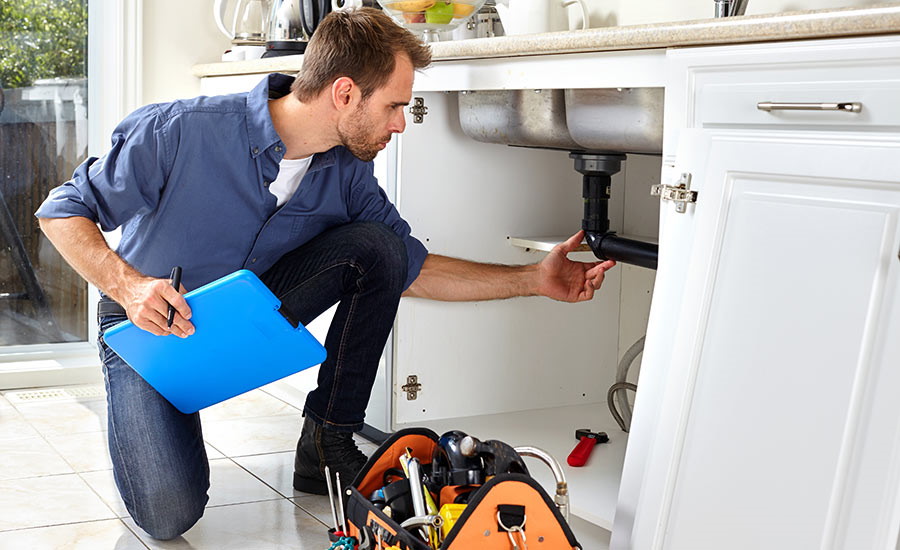All Categories
Featured

[/image][=video]
[/video]
Before you hurry to call a plumber or make some negative Do it yourself option, you could desire to take an appearance at these pipes secrets that can save you time and cash. It is very important to understand where you water shut down valve remains in your home, as this can conserve you from even more major damages when plumbing problems take place.
As soon as whatever is transformed off, take an appearance at your water meter. An ongoing motion on your water meter when all water resources are transformed off is a clear red flag that requires immediate focus.
Slow-moving drains are usually an early warning sign of a larger problem. It can suggest an obstruction in the making, a problem with your sewage system line, and even tree roots infiltrating your pipes. Rather than awaiting the drain to end up being completely blocked, take activity as quickly as you discover a stagnation.

If these do not work, it may be time to call an expert. Neglecting the concern might lead to a lot more serious and costly issues down the line. Understanding where your main water shutoff valve is can conserve you from prospective water damage in situation of a significant leakage or plumbing calamity.
Is Diy Plumbing Safe?
Guarantee every home adult understands where the shutoff valve is and how to use it. In the occasion of a significant leak, rapidly shutting off your home's water system can reduce damages and provide you satisfaction while you wait for a plumber to arrive. It's a preferred idea that chemical drain cleaners are the supreme solution for clogged up drains pipes a notion that couldn't be further from the reality.
The chemicals can rust the internal cellular lining of the pipelines, bring about weakened frameworks, leakages, and even pipeline bursts. The environmental ramifications of these chemicals are considerable. They can permeate right into groundwater and infect it, posing risks to local communities. The price of these prospective damages far exceeds the expense of any type of temporary convenience these cleaners might give.
These tools can properly clear obstructions without creating any type of damage to your pipes. If these techniques don't function, don't think twice to call an expert.

Nevertheless, over-tightening can bring about lots of troubles, including removed screws and broken bolts, resulting in leaks and even water damage. This usual error in do it yourself plumbing projects can transform a minor repair service into an expensive venture. Rather, pursue a snug fit. The suitable should be tight adequate to avoid leakages yet not so limited that it puts undue stress and anxiety on the equipment.
Should I Hire A Plumber?
Plumbing professional's tape, or Teflon or thread seal tape, is a must-have tool for every homeowner. It creates watertight seals at pipeline strings, preventing leaks at joints and connections.

Before affixing any kind of fittings, take a moment to cover a few layers of plumbing's tape around the strings in a clockwise instructions. Make certain the tape covers all the threads and is wrapped securely. This basic yet vital action can conserve you from dealing with annoying leakages down the line.
Remember that for larger concerns, expert assistance is always advised. To avoid this from occurring, consider installing pipe insulation.
Plus, throughout chillier months, pipe insulation can assist stop your pipes from freezing and breaking a scenario that can result in pricey repair services. When it involves sealing fixtures like taps, many DIY fanatics instinctively get to for a plumbing's putty. Yet there's a choice that may serve you better silicone caulk.
Should I Do My Own Plumbing?
This versatility enables it to accommodate slight changes or activities without breaking the seal, offering an extra sturdy and long-lasting option. Simply remember to let the caulk cure totally according to the manufacturer's directions before subjecting it to water to guarantee the most effective outcomes. "Doping" in pipes describes using pipe dope, or pipeline joint compound, to the threads of plumbing links before they're screwed together.
Latest Posts
The Definitive Guide to Identity Protection Tools
Not known Incorrect Statements About Identity Protection Tools
9 Simple Techniques For Identity Protection Tools